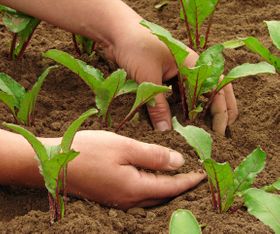Turn down the Heat: a personal impression
a small step ...
Recently, the World Bank and Coursera joined forces to create an online course explaining the effects of global worming on earth's climate. A group of more than 15,000 students learned about the role of the IPCC (Intergovernmental Panel on Climate Change). Through a selection of videos, peer assessments, literature and quizzes it became clear how the climate on the earth as we know it today will significantly change over the next decades.
Scientific evidence strongly suggests that the use of fossil fuels has resulted in a net increase of CO2 in the atmosphere triggering an ongoing process of global warming through the greenhouse effect. Although there still exist many unknown parameters in the scientific models, all simulations strongly suggest that even a modest increase (such as e.g. 2 degrees C) has signficant effects on the earth's climate. In that respect one could compare this with the sensitivity of humans with temperature, a difference of a mere 1 or 2 degrees Celsius determining the difference between being healthy, moderately ill or even very illThe same goes for the climate that is drastically impacted by a few degrees.
In that respect, the term global warming just highlights a small fraction of what is actually taking place in the enviroment. Indeed, global warming refers to the increase of the earths oceans and air, but the consequences of this heating process are tremendous, including the melting of ice, the heating of surface water, the increased intensity of precipitation as well as ocean acidification resutling in serious disturbances in the marine ecosystem. Combined, all these effects paint a picture that is powerful enough te be a wake up call, at least for the individual that is following this online course.
There probably will always be some people that remain sceptical as far as the scientific proof is concerned, but even regardless of this it woujld be wise from a precaution point of view to accept that the global warming phenomenon will result in significant changes in our ecosystem, not only during our lifetime, but especially in the lifetimes of the generations that will be following us.
In that respect it is our moral duty to take some action, even if it means a small step. From a personal view, some of the initiatives that I will be taking (some of them were already being taken): 1) try as much as possible to use non-motorized transportation (or use at least carpooling as much as possible). 2) take into account the ecologic footprint of groceries, 3) be economic with respect to heating (by e.g. wearing a sweater at home instead of heating the room extra), 4) cooking in a more energy friendly way (e.g. using microwave instead of boiling, ...).
And last but not least: all aspects that we have learned in this course can be a fruitful sourrce of inspiration when discussing climate within our family. A key challenge in my opinion lieas in the fact that we can educate the next generation about hte seriousness of the climete aspect such that they when they become active menbers in society can hopefully play their rol in finding and implementing the appropriate solutions on a global scale.






